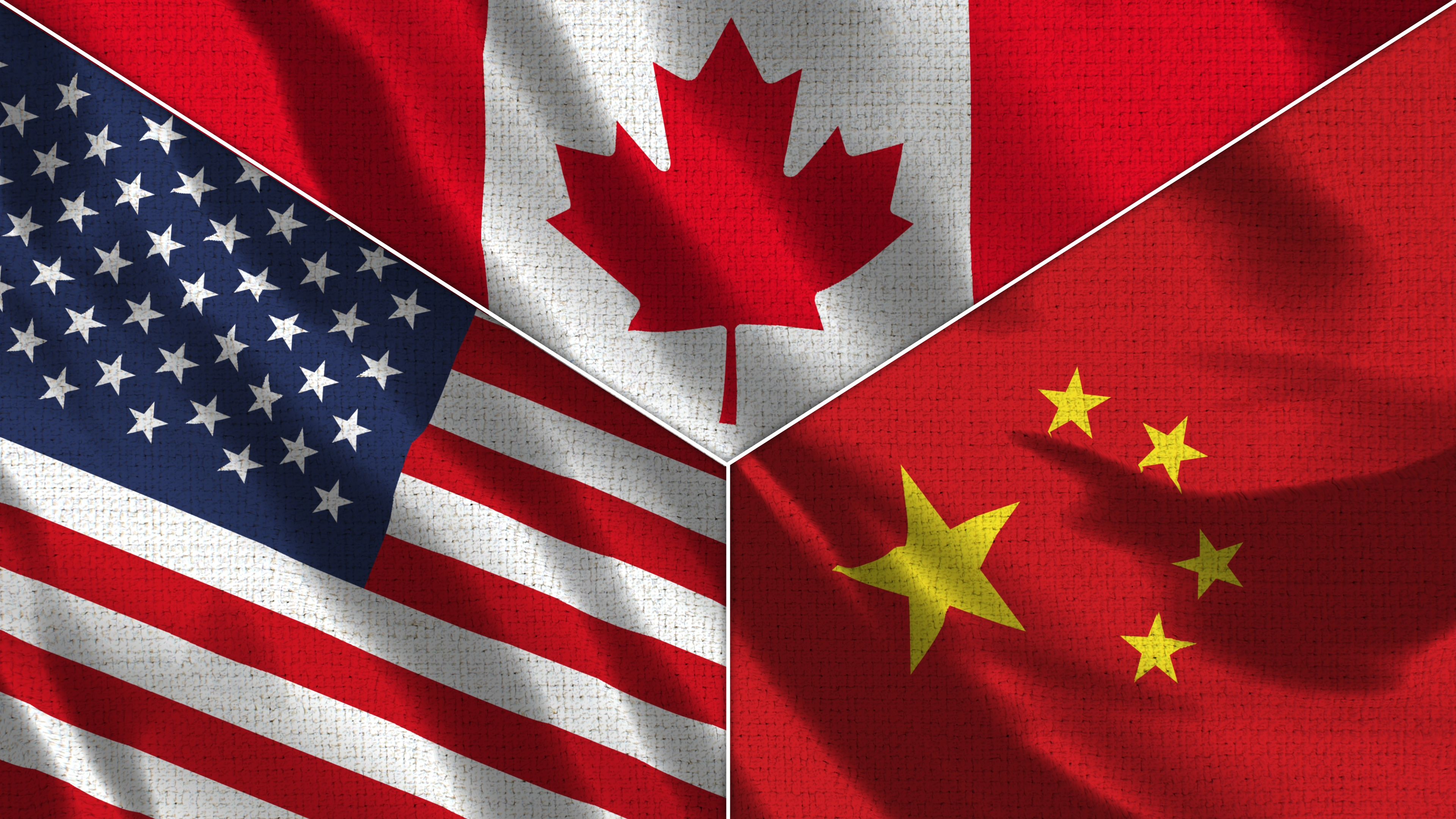The Biden Administration: Changes in China Policy?
Tom Alton - 21 January 2021
 It is abundantly clear that Donald Trump and newly anointed President Joe Biden fundamentally disagree on many (and perhaps most) domestic political issues. This divergence extends to the sphere of foreign policy, where Biden has pledged to move away from Trump’s “America First” approach. America’s China policy, however, is a more nuanced topic.
It is abundantly clear that Donald Trump and newly anointed President Joe Biden fundamentally disagree on many (and perhaps most) domestic political issues. This divergence extends to the sphere of foreign policy, where Biden has pledged to move away from Trump’s “America First” approach. America’s China policy, however, is a more nuanced topic.
There is bipartisan support in Washington for an uncompromising, hardline approach to engagement with Beijing. While the Biden Administration will likely be less abrasive and perhaps “more inclined to revive avenues of cooperation,” both parties view China with a healthy dose of distrust and skepticism. There may not be a radical shift in China strategy, but President-elect Biden will undoubtedly attempt to carve out his own approach as a means of both restabilizing and re-entrenching the American position. Canada, as always, will feel the impact of this change.
Trump’s Legacy
China was a frequent talking point for Donald Trump in the lead up to the 2016 U.S. presidential election - he pledged to “confront” China and reform trade relations with Beijing by imposing tariffs and currency manipulator status on the country, among other campaign promises. Trump also immediately challenged the “status-quo” with China as President-elect by breaking decades-old policy norms towards Taiwan, taking a call from Taiwanese leader Tsai Ing-wen and even questioning the restrictiveness of the “one China” policy.
This set the tone for a tumultuous relationship with China. The most visible element was the U.S.-China trade war, a hallmark of President Trump’s “get tough” approach. This seemingly unending economic conflict was punctuated by retaliatory tariff increases and countless meetings before a “phase one” trade agreement was reached in January 2020. The Trump administration also notably implemented measures limiting the activities of prominent Chinese tech companies such as TikTok, WeChat and Huawei, in the country - moves that drew anger from Beijing but were largely supported on a bipartisan basis in Washington. These measures, in addition to countless others (from Hong Kong sanctions to Chinese graduate student restrictions, to banning investment in companies with linkages to the Chinese military), demonstrate the hawkish approach that currently characterizes the U.S.-China relationship.
Looking beyond specific policy decisions, however, President Trump will likely be remembered for his unfiltered and at times bombastic rhetoric towards China. He has frequently and controversially referred to COVID-19 as “the China virus,” placing targeted blame on the country for its global spread while the disease ravaged the United States. But, at times, Trump also spoke glowingly about Chinese President Xi - frequently calling him a friend (President Xi has done the same, and the relationship was once called a “bromance” by economic advisor Larry Kudlow) and even initially praising his handling of the COVID-19 outbreak in China. It was also clear that his alleged rapport with Xi and unwillingness to compromise broader trade-related objectives were, at times, incompatible with American human rights objectives in places like Hong Kong and Xinjiang. Trump’s China-directed rhetoric appeared to widely oscillate depending on his mood - an inconsistency that muddled American policy.
The Biden Administration: What Next?
Beginning with unfounded Republican allegations of voter fraud and culminating in a mob storming the Capitol Building just two weeks ago, the months preceding inauguration day were filled with unease and uncertainty. Biden’s inauguration speech, which included a plea for Americans to eschew political division and come together, demonstrated the multitude of domestic challenges that he will face in the coming months.
On the topic of foreign policy, the transition of power and priorities from the Trump to Biden Administration will be stark. President Biden will immediately rescind numerous Trump policy decisions - using executive orders to rejoin the WHO and Paris climate agreement, for example. Myron Brilliant, the executive vice president of the U.S. Chamber of Commerce, stated to the New York Times that while Biden will not be afforded “political flexibility early on, but we expect a significant departure in tone, style and process.”
On the topic of China, Bloomberg notes that the Biden strategy “so far points to a more multilateral approach that places greater emphasis on alliances and human rights and is less reliant on tariffs and arms sales” but is “more like a change of tactics than a strategy overhaul.” Biden, who has dealt heavily with China over his nearly 50-year political career, not made overt proclamations in the same vein as his predecessor, but will still likely leverage the current hawkish sentiment in Congress in his approach.
Above all else, he will be left to deal with the legacy of Trump’s multi-year efforts to play hardball with Beijing, including the implementation of tariffs on Chinese goods and restrictions on Chinese firms operating on American soil. Despite this, TikTok and WeChat are still available in the U.S., and there has been recent confusion regarding the delisting of Chinese firms from the New York Stock Exchange (NYSE). In addition, the Phase One trade deal - a self-lauded accomplishment of the Trump Administration - is falling short of expectations according to analysis from the Peterson Institute for International Economics. Between January and November of 2020, China had completed just 58% of its purchase target of American exports.
Implications for Canada
The immediate impact for Canada is still largely uncertain. If the Biden Administration does in fact champion a more multilateral approach to its foreign policy, Canada will theoretically benefit. This appears likely. Biden has pledged to convene a global “Summit for Democracy” in order to “forge a common agenda to address threats to our common values.” This multilateral effort, which is reportedly at the heart of his China policy, could permit middle-powers like Canada to act and stand more forcefully alongside its allies towards China on issues related to Hong Kong, Xinjiang, and trade. The best way to combat “China’s abuse,” Biden stated in a July 2019 speech, is to “build a united front of friends and partners.”
Any immediate resolution of the extradition case of Meng Wanzhou will also flow through Washington. Despite the appeals and legal opinions of observers who believe that Canada should (and legally could) intervene in the extradition case as a means of securing the release of Michael Kovrig and Michael Spavor, the Trudeau-led Liberal Government has clearly rejected this notion. With the extradition process set to drag into mid-to-late 2021 (plus the possibility of a lengthy appeal), the current bilateral impasse between Canada and China is set to continue. The only short-term resolution would involve the U.S. Justice Department cutting a deal with Huawei and Ms. Meng - by way of a “deferred prosecution agreement”. The Wall Street Journal reported in early December 2020 that this could be a possibility - although nothing has been confirmed. Biden Administration officials may not want to cut a deal with China so early, and there is no guarantee that Meng would even take the deal - as it would likely require her to admit guilt.
There is little doubt that 2021 will bring immense change to the global political landscape. The Biden Administration - in theory - offers a welcome respite from four years of uncertainty, unpredictability, and divisive rhetoric. The adversarial U.S.-China relationship will, however, continue to create challenges for third parties such as Canada and the Meng case continues to undermine any hope of improving bilateral ties. Regardless, there is little the Canadian government can do besides wait and hope for a swift resolution in the courts, and possibly in Washington.

Tom Alton Policy Research Assistant
Tom Alton is a Policy Research Assistant at the China Institute at the University of Alberta (CIUA) and a BCom graduate from the Alberta School of Business.